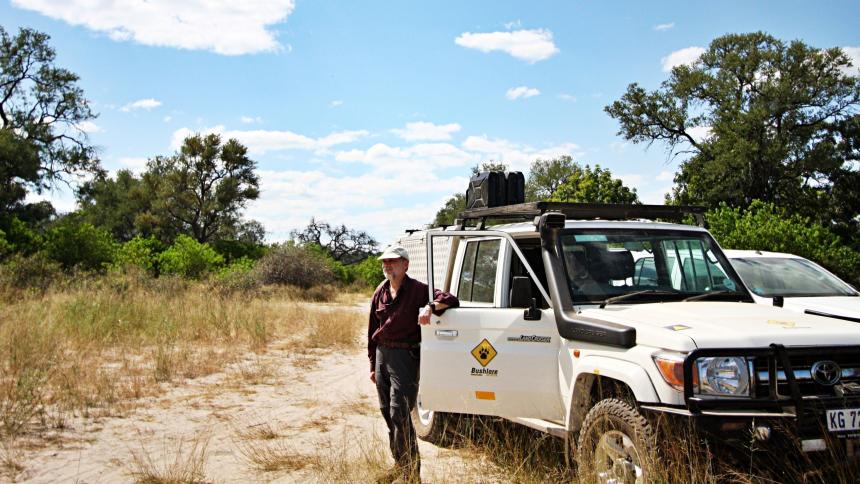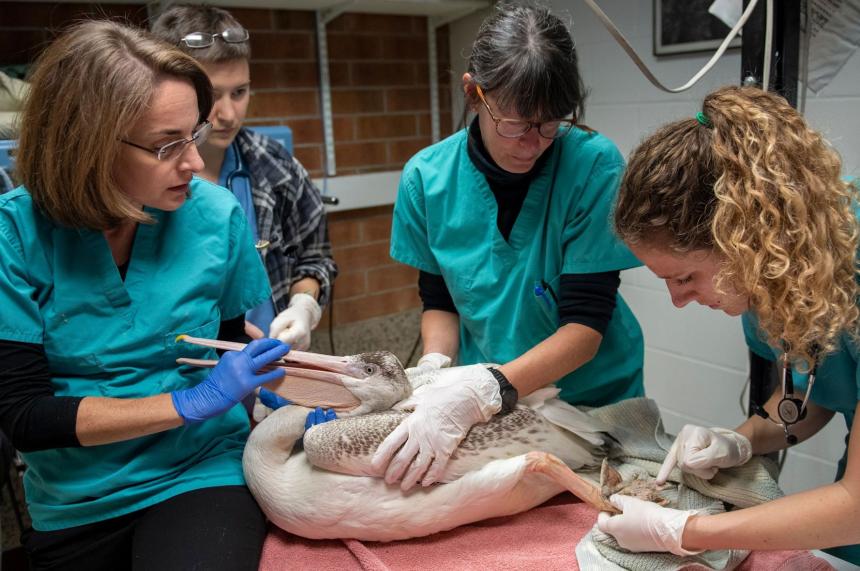In the News

February 05, 2023
Congratulations to Maggie Swift, who will be joining us as an Atkinson Center Postdoctoral Fellow! Maggie will use advanced computer modeling to simulate elephant movements in southern Africa that will make it easier to evaluate scenarios for integrative, sustainable land-use management.

January 18, 2023
From Ithaca to the plains of southern Africa, the Cornell Wildlife Health Center is working to heal the natural world. Launched in 2020, the center was formed to unite Cornell’s leading wildlife health professionals under a common mission: to repair the fractured relationship between people and nature.

January 16, 2023
The Cornell Wildlife Health Center has launched a new Student Support Fund for off-campus apprenticeships with free-ranging or captive wildlife, on-campus wildlife research, and student travel to present at professional conferences on wildlife health and conservation.

Video
December 07, 2022
It is no longer possible to separate the health of the planet from the health of its people. Disease patterns are changing as the climate does, and human health is at risk from loss of biodiversity, depleted water supplies, environmental toxins, and collapsing food systems.

Video
November 18, 2022
Our team has been working in the Kavango Zambezi Transfrontier Conservation Area to reduce wildlife-livestock conflict, improve community livelihoods, and restore ancient wildlife migration pathways, including those of Africa’s largest remaining population of elephants (~220,000). This video was taken by Cornell Wildlife Health Center Dr. Steve Osofsky.

Video
November 04, 2022
Cornell Wildlife Health Center director Dr. Steve Osofsky takes you on a brief tour of our One Health work around the world.
Video
November 01, 2022
An amazing sight — a colony of thousands of Carmine Bee-eaters in the Zambezi Region, Namibia caught on camera by Dr. Steve Osofsky, director of the Cornell Wildlife Health Center and professor at the Cornell University College of Veterinary Medicine.

Video
November 01, 2022
“This is why we do what we do,” says Center Director Dr. Steve Osofsky, who took this video of an elephant herd this spring while working with local partners in the Kavango Zambezi Transfrontier Conservation Area in southern Africa.

August 29, 2022
Cornell and regional partners have, over many years of collaboration, developed innovative ways to resolve conflicts at the wildlife-livestock interface in the interest of advancing transfrontier conservation and sustainable economic development.

Video
August 12, 2022
“This is why we do what we do,” says Cornell Wildlife Health Center director Dr. Steve Osofsky, who took this video of an elephant herd this spring while working with local partners in the Kavango Zambezi Transfrontier Conservation Area in southern Africa.
